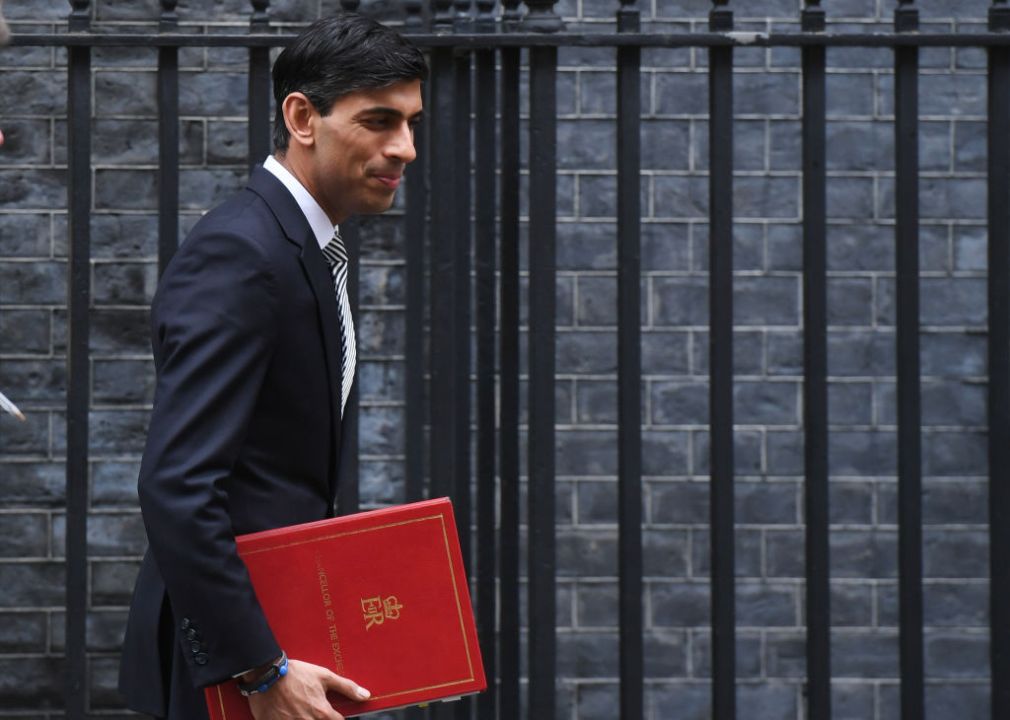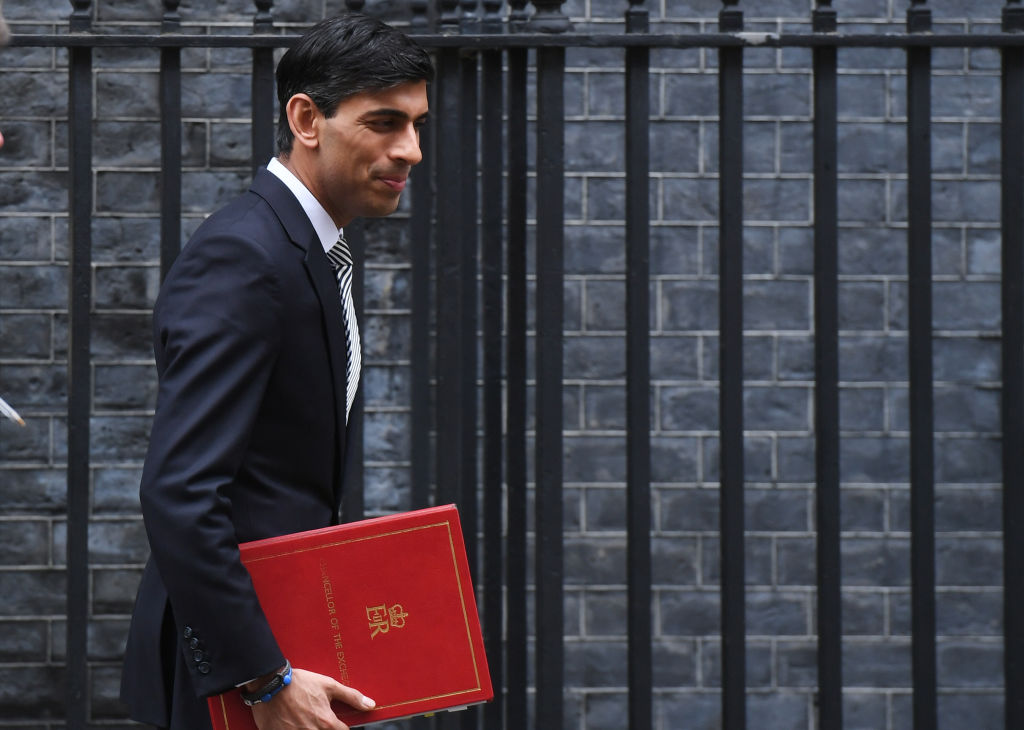If there was any doubt still remaining that Rishi Sunak’s first Budget will be dominated by the coronavirus, the Chancellor’s Sunday media round ought to have put that to bed. With three days to go until the government’s first big fiscal event since winning an 80-seat majority, Sunak has been touring the broadcast studios of Sky and the BBC to trail the contents of his red box.
Speaking to Andrew Marr, Sunak was clear that the priority of the Budget would be making sure that both members of the public and businesses receive the support they need to respond to the virus in the coming weeks and months:
I can say absolutely categorically the NHS will get whatever resources it needs to get us through this and to respond to the health crisis … they are going to be on the front line of responding to this and we want to make sure they have everything they need.
Senior government figures are bracing themselves for the spread of the virus to escalate in the days to come — some even think virus figures could be the biggest story on Budget day. Sunak said he would be pledging extra money both for the NHS and for businesses that could come under pressure as a result of the virus’s knock on-effect to the economy. He said the focus of the business relief would be on funding bridging financing rather than providing bailouts. The decision not to bail out the ailing Flybe last week (despite doing so once before) gives a good indicator of how the government will conduct its approach. He was also adamant that coronavirus uncertainty ought not to change the date the U.K. ends the Brexit transition period — insisting that little good ever comes from delay.
Sunak was more vague, however, when it came to sick pay for those who fall ill with the virus. When pressed by Marr, he would not guarantee that those who work in the gig economy will receive sick pay.
On top of only being in the job for a couple of weeks after Sajid Javid’s shock resignation, the Chancellor conceded that instability surrounding the coronavirus meant his job had become harder — in anticipating the fiscal factors of the coming months. As a result, away from the coronavirus, his focus is on fulfilling spending pledged in the Conservative manifesto rather than making new ones. Sunak said that trust had broken down in politics and he hoped by making sure key Tory election promises were kept, it would be be the start of efforts to restore it.
When it comes to the Conservative party’s reputation, the other big question is what will happen to Sajid Javid’s fiscal rules which limited borrowing for day-to-day spend. Sunak would not give a clear answer when asked if he would stick with them. Instead, he said that it was premature to discuss ahead of Wednesday. However, he was keen to emphasise that as Chancellor he is someone who believes in fiscal responsibility. This comes after suggestions from Sajid Javid allies in recent weeks that — in pushing Javid out — No. 10 wanted a Chancellor who would turn the spending taps on.
The upcoming Budget was supposed to serve as an indicator of how serious the Tories are about keeping their new voters in the North. The coronavirus means that this will no longer be the top line and a lot of the big decisions relating to this will be pushed to the Autumn Budget. However, Wednesday’s fiscal event still ought to give an indication. Sunak said he was committed to moving a fifth of Treasury staff to a new economic campus in the north. Where he picks will tell us where the Tories view as key to making a success of the government’s level up agenda.








Comments